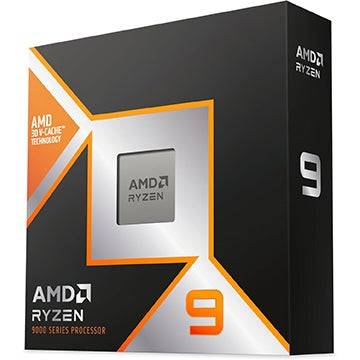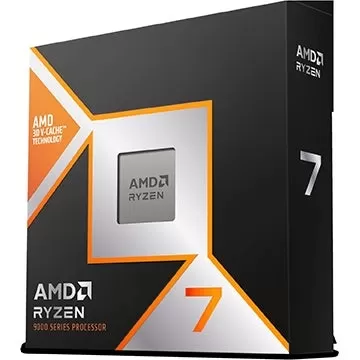Just a few months after the AMD Ryzen 7 9800X3D graced us with its presence, the AMD Ryzen 9 9950X3D has arrived, bringing its advanced 3D V-Cache technology to a formidable 16-core, 32-thread gaming processor. This beast of a chip is designed to effortlessly handle the most demanding graphics cards like the Nvidia RTX 5090 or future equivalents, making it a powerhouse for gaming enthusiasts. However, with a steep price tag of $699 and a high 170W power budget, the Ryzen 9 9950X3D might be overkill for most users. For those not looking to splurge on a top-tier gaming setup, the more budget-friendly Ryzen 7 9800X3D remains a compelling choice.
Purchasing Guide
The AMD Ryzen 9 9950X3D will be available starting March 12, with a suggested retail price of $699. It's worth noting that AMD's processor prices can fluctuate based on market demand, so keep an eye on current offers.
AMD Ryzen 9 9950X3D – Photos
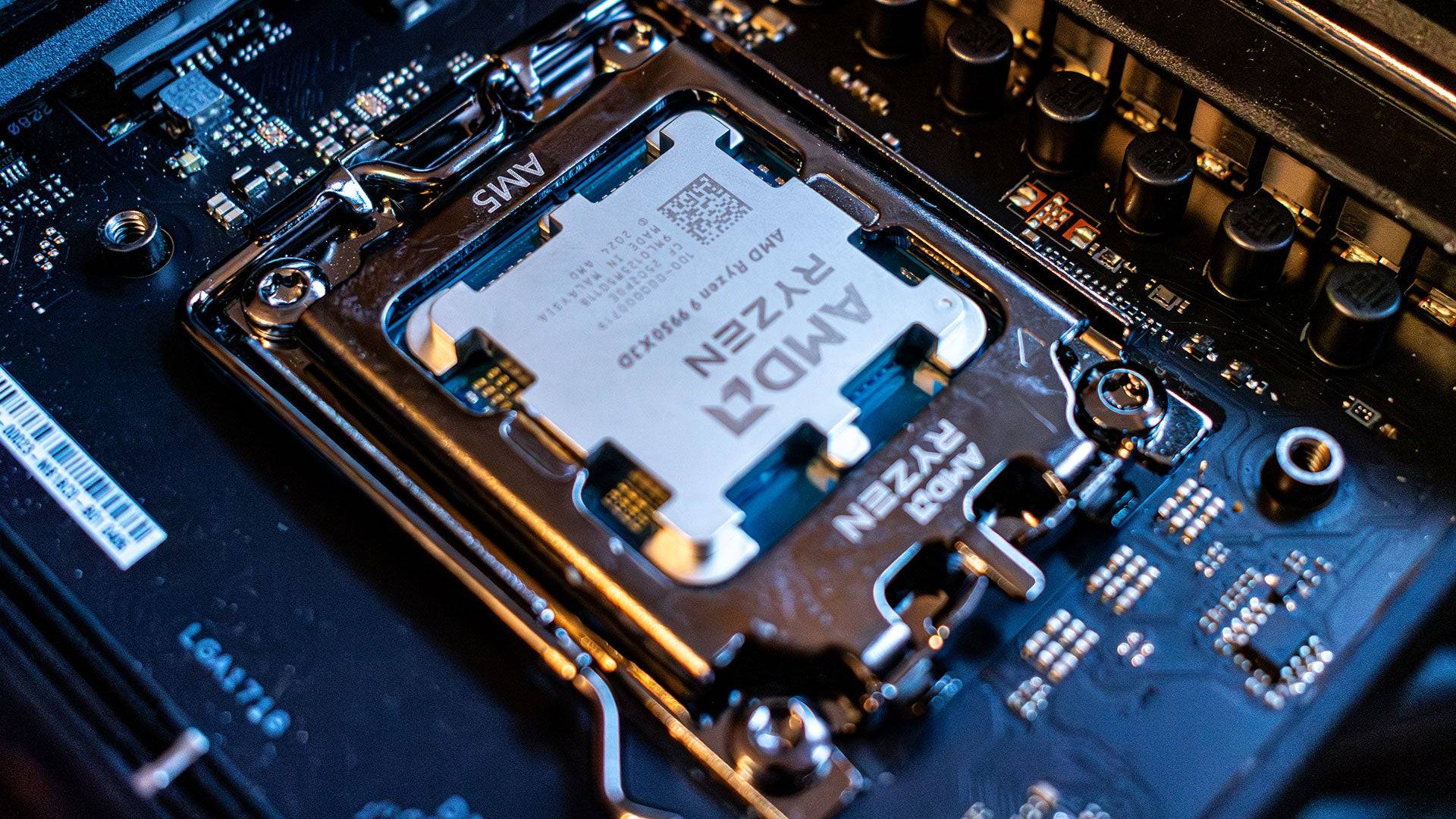
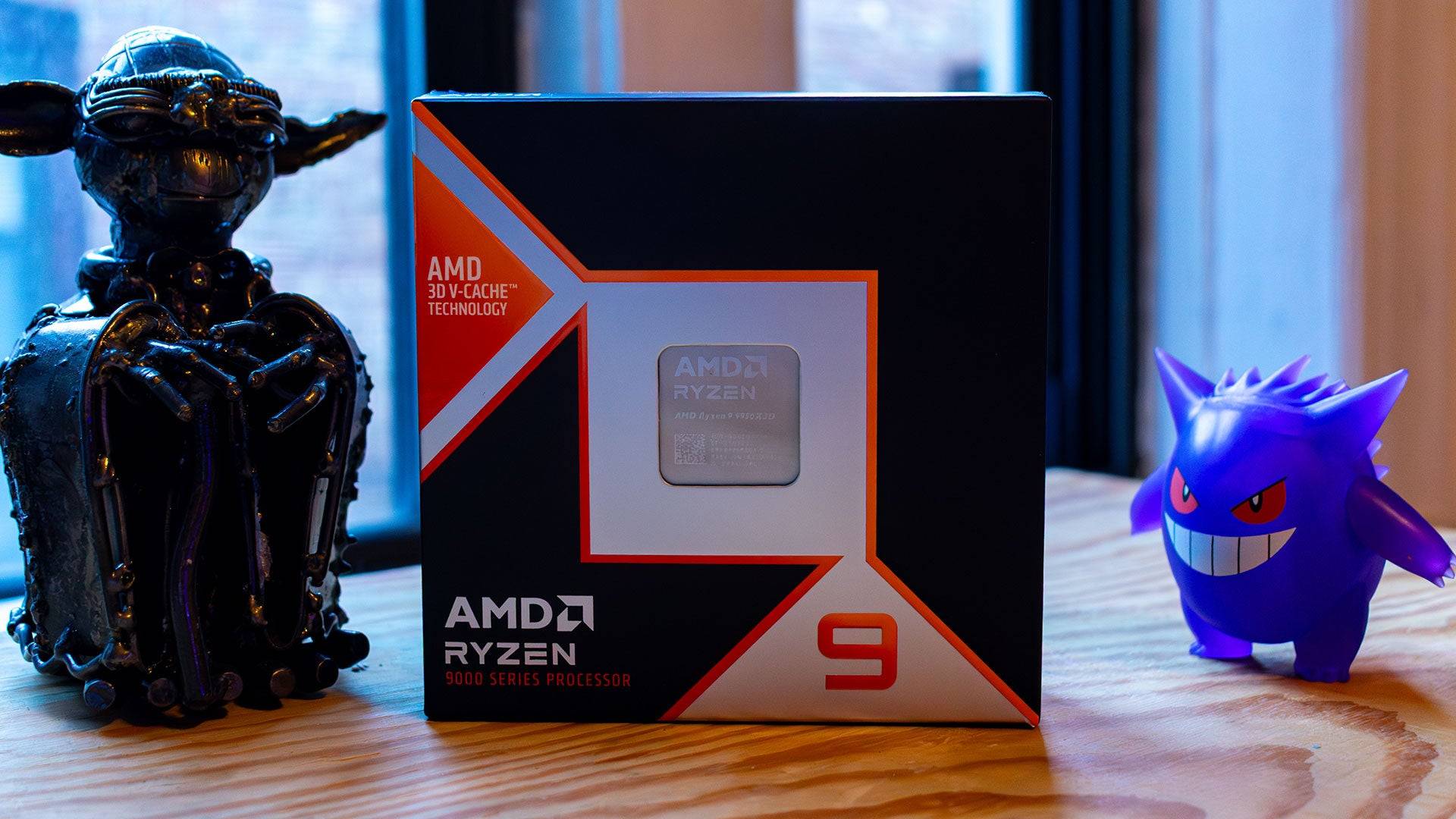 3 Images
3 Images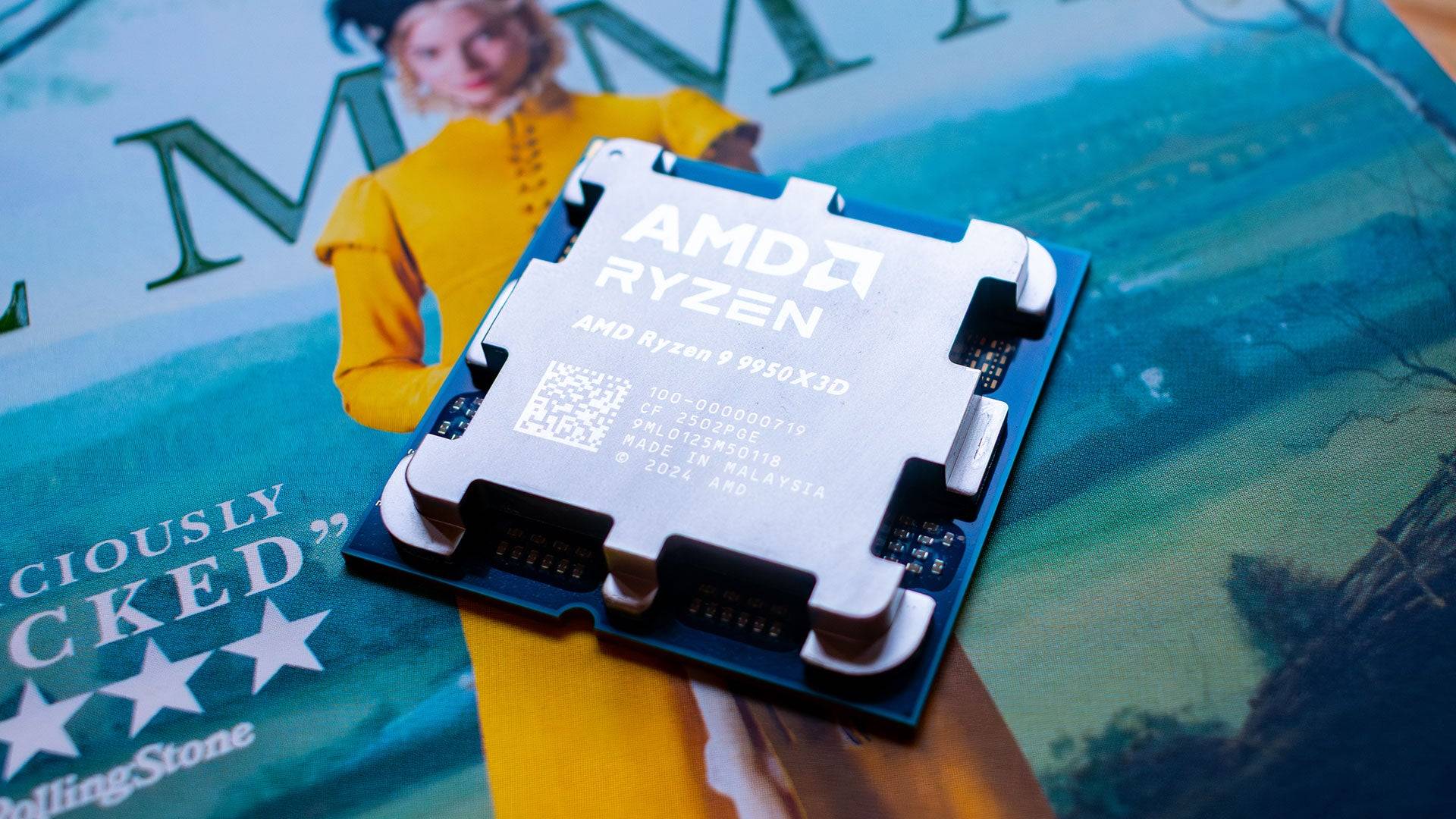
Specs and Features
The AMD Ryzen 9 9950X3D leverages the Zen 5 architecture cores found in the standard 9950X, enhanced with the 2nd-generation 3D V-Cache technology seen in the Ryzen 7 9800X3D. This combination promises stellar multi-core performance alongside superior gaming capabilities due to its expansive cache.
Unlike its predecessor, the Ryzen 9 7950X3D, the new 3D V-Cache is strategically placed below the CPU cores. This seemingly small tweak significantly enhances thermal efficiency. With the Core Complex Die (CCD) positioned closer to the Integrated Heat Spreader (IHS), heat dissipation is improved, allowing the Ryzen 9 9950X3D to maintain higher performance levels for extended periods, thanks to AMD's performance algorithm that adjusts based on thermal headroom.
The cache's new position also reduces data travel distance, lowering latency and increasing the total cache size to an impressive 144MB of combined L2 and L3 cache—matching the previous generation's Ryzen 9 7950X3D and surpassing non-X3D models.
Both the Ryzen 9 9950X and 9950X3D share a 170W TDP, though the non-3D version has a higher potential PPT. Testing showed both CPUs peaking at 200W, with the 9950X3D achieving a lower peak temperature of 79°C on a different cooler than the 9950X.
Compatibility is not an issue, as the 9950X3D works with any AM5 AMD motherboard, with AMD committing to support this socket until at least 2027, ensuring future-proofing for your investment.
AMD Ryzen 9 9950X3D – Benchmarks
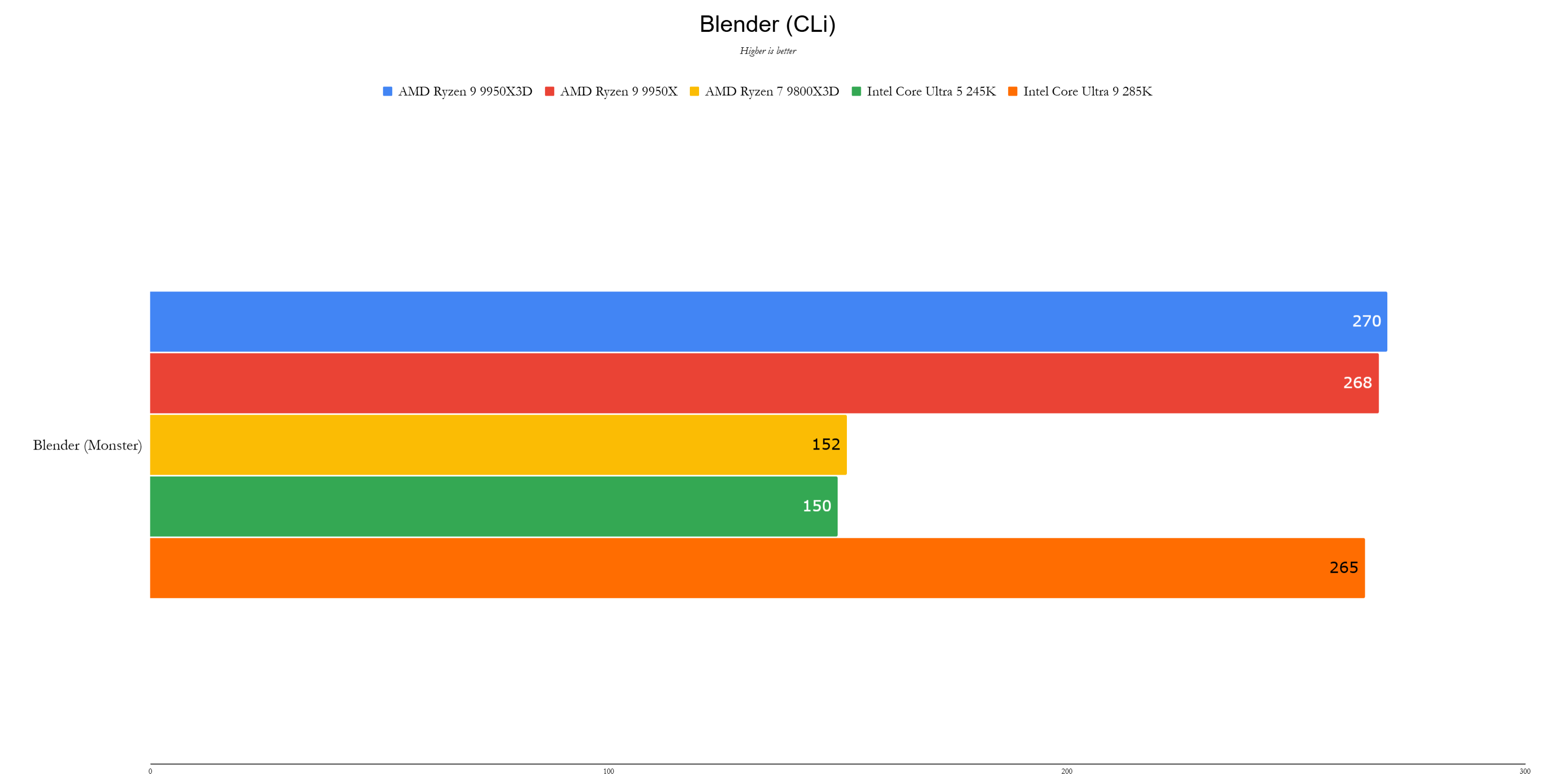
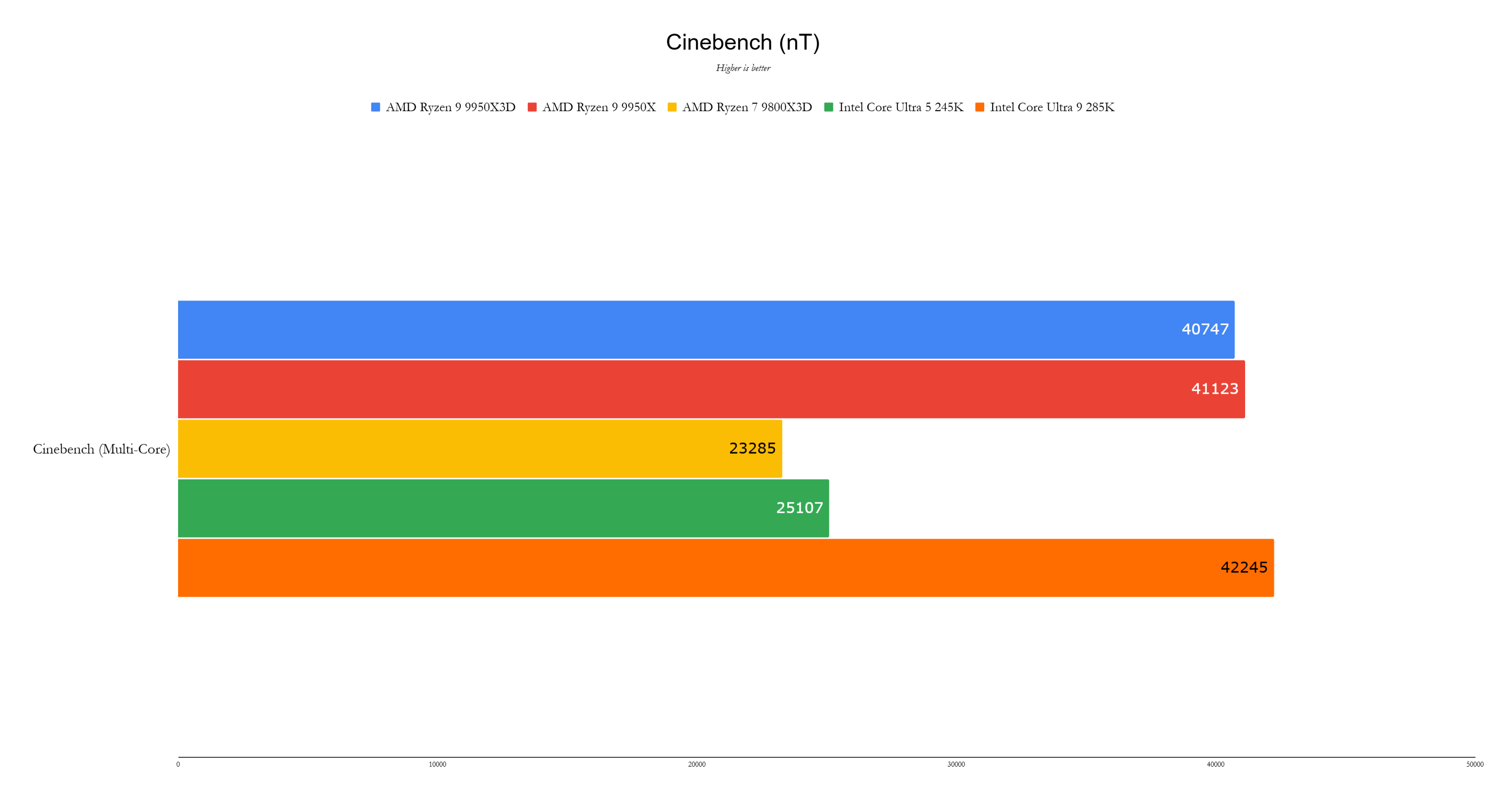 11 Images
11 Images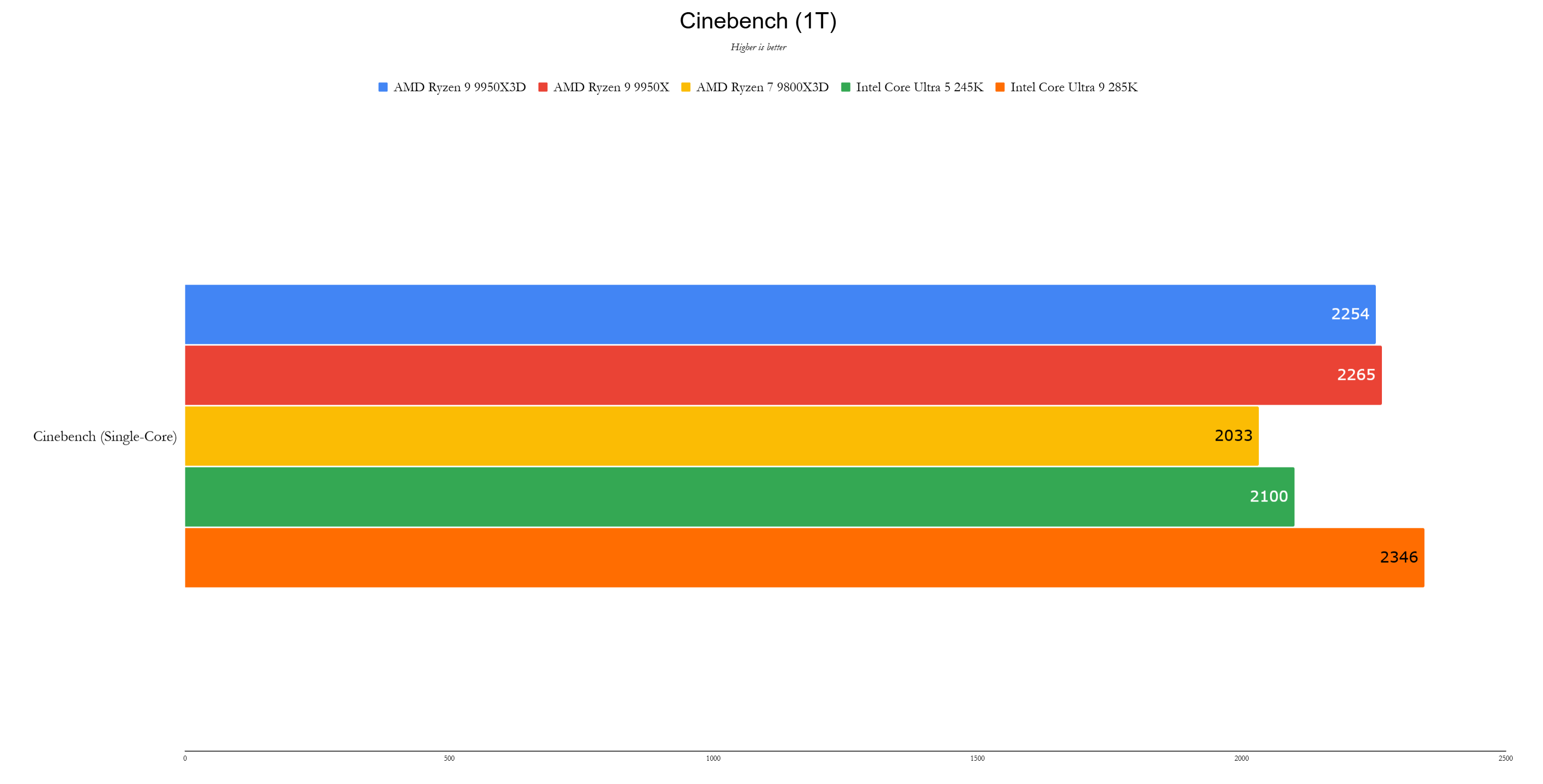
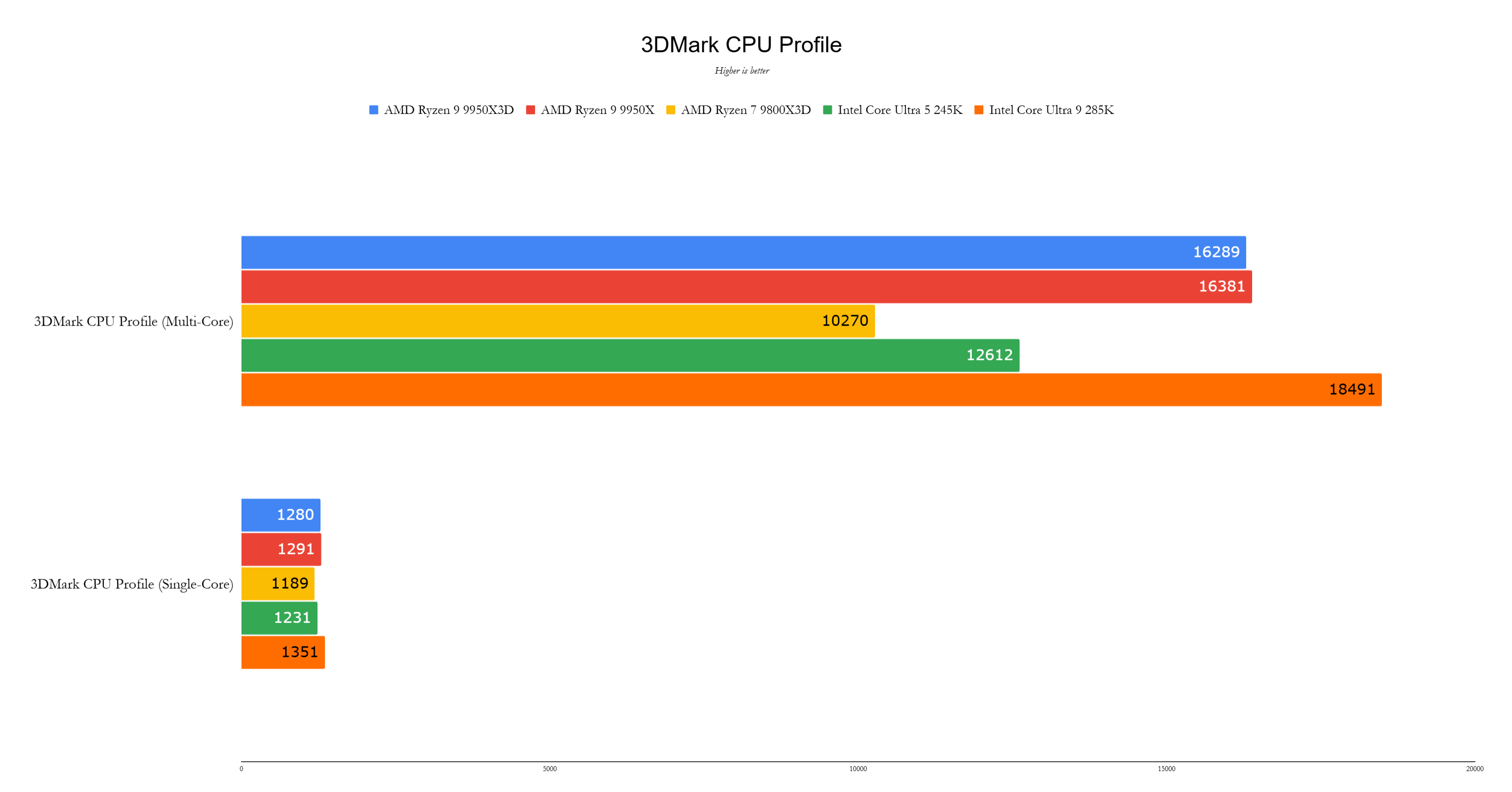
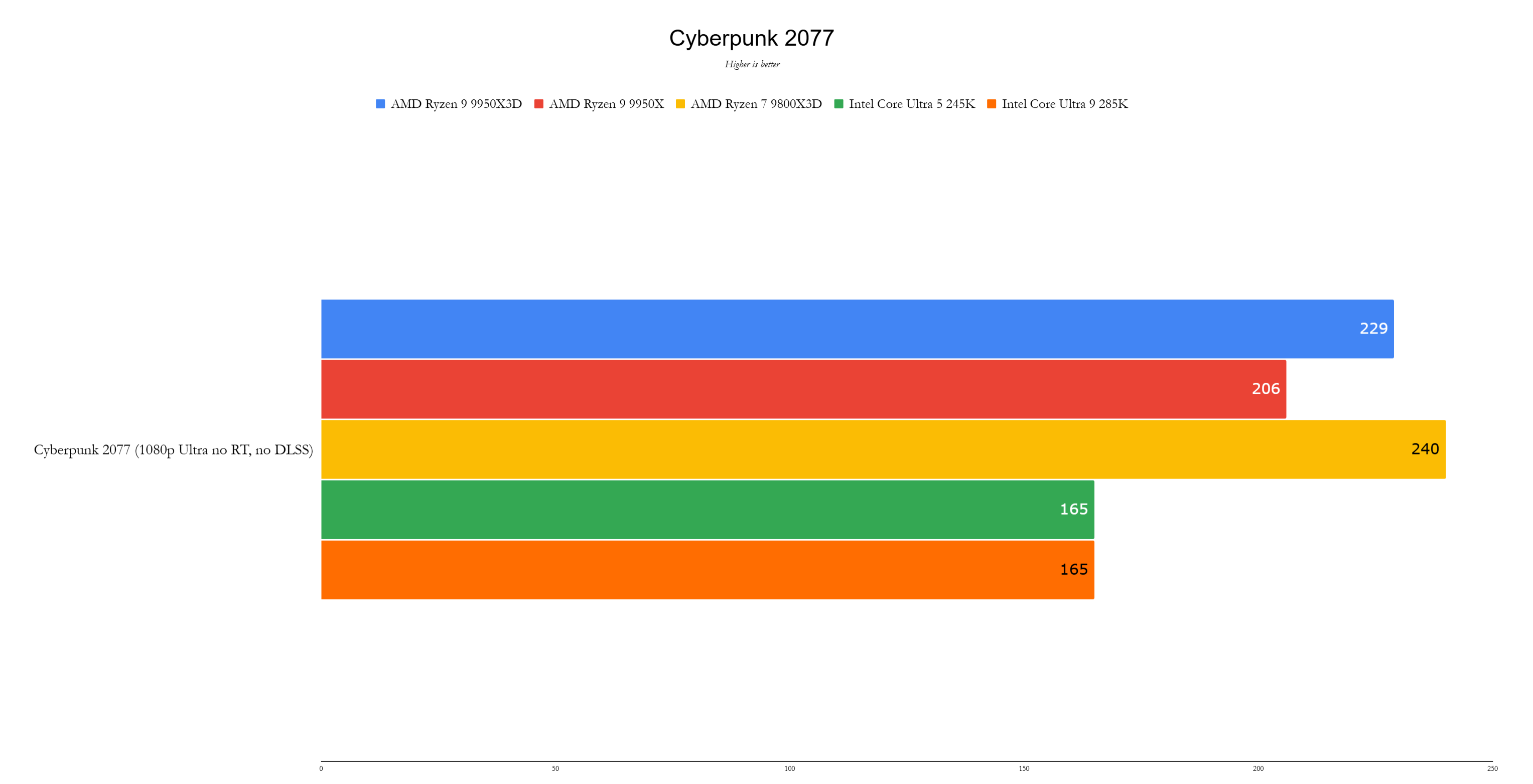
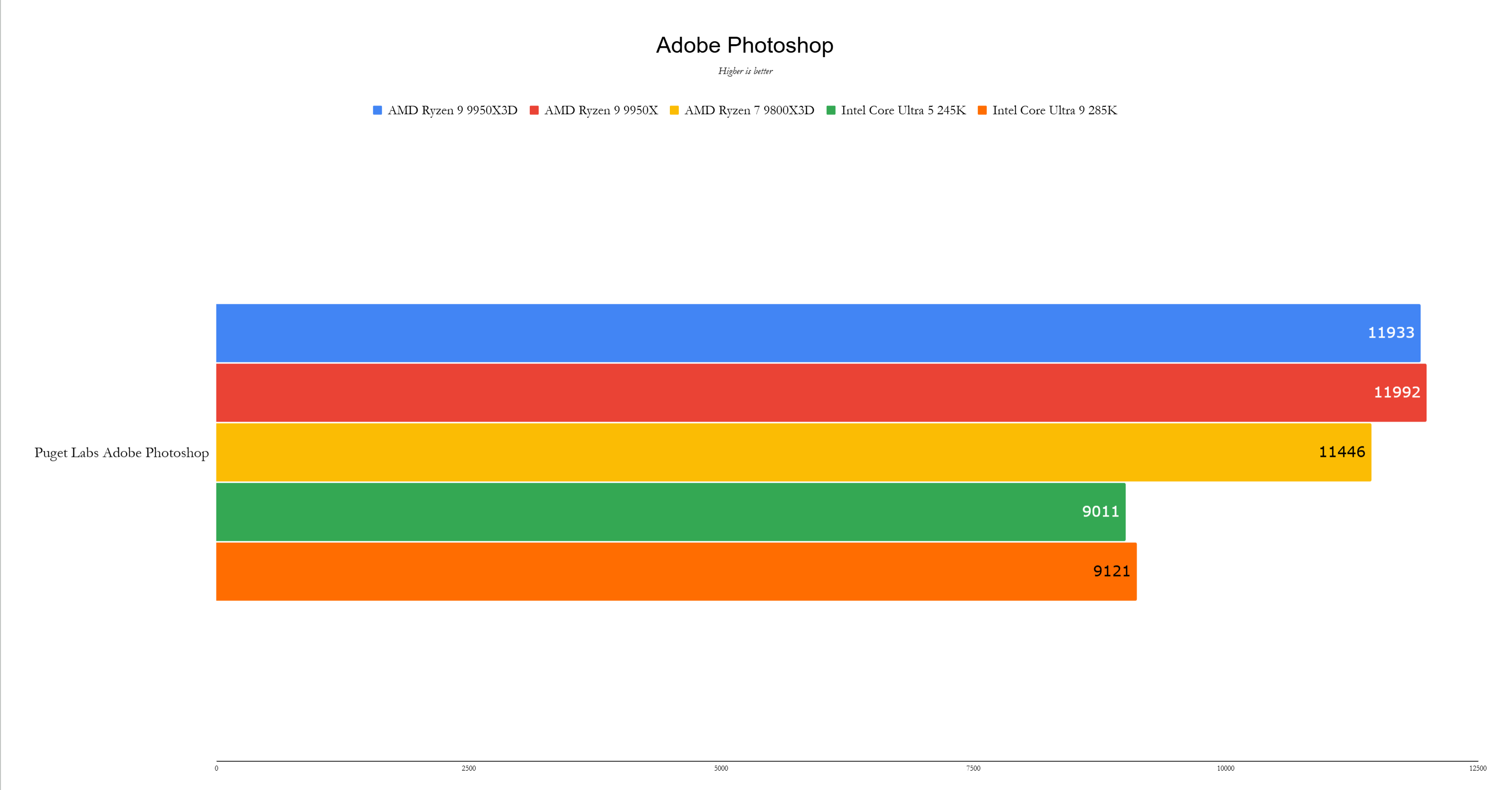
Performance
Before delving into performance results, it's important to mention that all CPUs were tested on the same hardware, except for the Ryzen 9 9950X, which was tested on an Asus ROG Crosshair X670E Hero motherboard with a Corsair H170i 360mm AIO cooler. While this variation in hardware might affect performance, the impact is expected to be minimal, especially since testing was conducted at stock settings.
AMD Test Bench:
GPU: Nvidia GeForce RTX 4090
Motherboard: Asus ROG Crosshair X670E Hero; Asus ROG Crosshair X870E Hero (9800X3D)
RAM: 32GB G.Skill Trident Z5 Neo @ 6,000MHz
SSD: 1TB PNY CS3140 Gen4x4 NVMe SSD
CPU Cooler: Asus ROG Ryujin III 360 ARGB Extreme
Note: A hardware issue occurred when testing the 9950X due to a broken mounting screw on the cooler. A retest is planned, and any significant changes will be updated here.
The AMD Ryzen 9 9950X3D, with its 16 cores, 32 threads, and massive 144MB cache, showcases exceptional power. Even in creative benchmarks where the 9800X3D lagged, the 9950X3D keeps pace with the top chips on the market.
Intel Test Bench:
GPU: Nvidia GeForce RTX 4090
Motherboard: Asus ROG Maximus Z890 Hero (200S); Asus Prime Z790-A (14th-Gen)
RAM: 32GB Corsair Vengeance DDR5 @ 6,000MHz
SSD: PNY CS3140 1TB Gen 4 x 4 NVMe SSD
CPU Cooler: Asus ROG Ryujin III 360 ARGB Extreme
Surprisingly, the 9950X3D performs admirably against the 9800X3D in single-core workloads. In Cinebench 1T, the 9950X3D scores 2,254 points, a 10% improvement over the 9800X3D's 2,033 points. In the 3DMark CPU Profile test, it achieves 1,280 points, closely trailing the Intel Core Ultra 9 285K's 1,351 points.
In multi-threaded workloads, the Ryzen 9 9950X3D shines, scoring 40,747 points in Cinebench's multi-core test. While it slightly underperforms compared to the 9950X (41,123 points) and Intel Core Ultra 9 285K (42,245 points), the trade-off is a significant boost in gaming performance.
In gaming benchmarks, Total War: Warhammer 3 at 1080p with Ultra settings sees the 9950X3D reaching 274 fps with an RTX 4090, outpacing the 9800X3D (254 fps) and Core Ultra 9 285K (255 fps). However, in Cyberpunk 2077 at 1080p with the Ultra preset and ray tracing off, it delivers 229 fps, slightly less than the 9800X3D's 240 fps, but still well ahead of the Intel chip's 165 fps.
Overkill?
While the AMD Ryzen 9 9950X3D stands as the most powerful gaming processor currently available, it's not necessarily the best choice for everyone. For most users, the Ryzen 7 9800X3D, priced at a more affordable $479, offers excellent performance without breaking the bank.
The 9950X3D is best suited for users who require top-tier performance in both gaming and creative applications like Photoshop and Premiere, where it shows a 15% performance increase over the 9800X3D. For those building a gaming-focused PC, consider saving the extra $220 to invest in a superior graphics card instead.

